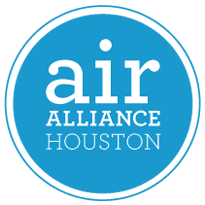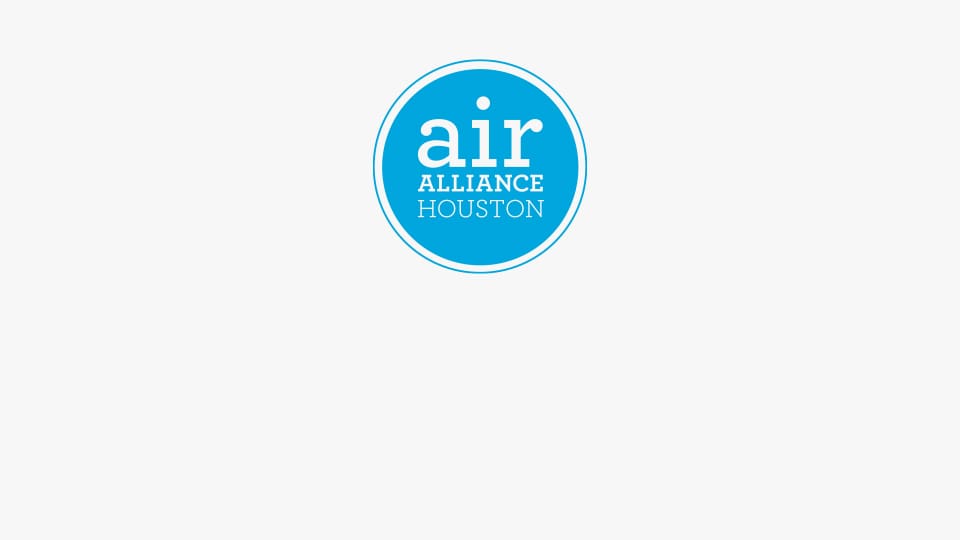Air Alliance Houston’s Statement on Environmental Protection Agency’s (EPA) and the Texas Commission for Environmental Quality’s (TCEQ) announcements to indefinitely suspend environmental regulations and exercise “enforcement discretion” in response to COVID-19:
According to a recent analysis by the University of Texas School of Public Health, many of the communities in the Houston area that will bear the brunt of the public health burden that these reckless decisions will impose are also at higher risk of experiencing worse health outcomes from COVID-19.
COVID-19 presents unique challenges for people with underlying health conditions as well as the elderly – groups that are also at higher risk of disease and premature death from air pollution. Moreover, air pollution could also exacerbate the health impacts of COVID-19. Yet, within the past week, both state and federal government officials issued statements that amount to releasing major industrial facilities from rules requiring them to abide by pollution permits and exempting them from the timely reporting of certain environmental incidents. These waivers put the public health of communities already struggling with the consequences of an on-going pandemic at even greater risk.
The nation’s environmental rules are some of the first lines of defense for protecting public health. The failure to recognize that relaxing these requirements during an escalating public health emergency not only puts communities at greater risk but also bears the potential to increase the burden on an already strained health care workforce, including first responders. The unavoidable conclusion is that our government continues to fail when it comes to protecting public health.
Clarity is needed to determine what steps facilities are taking to prevent illegal air pollution releases and minimize chemical threats during these uncertain times.
There are more than 400 petrochemical facilities, including two of the four largest U.S. oil refineries, in Harris County. Two of the largest environmental regulatory agencies in the world – TCEQ and EPA – must recognize their primary responsibility to ensure that all communities breathe clean air every day and are protected from exposure to air pollution during disasters, including COVID-19. The EPA and TCEQ granting environmental waivers during COVID-19 leaves Houston communities defenseless against industrial polluters. In a letter addressed to President Trump and other elected officials, an industry coalition requested that all levels of government come together to apply a consistent definition of “critical infrastructure” and to follow the guidance issued from the Department of Homeland Security Cybersecurity and Infrastructure Security Agency to identify “critical infrastructure workers.”
During any disaster, health, safety, and environment (HSE) workers at industrial facilities must be considered a part of the “critical infrastructure workforce” in order to ensure facilities are operating safely and to protect against major disasters. Without adequate HSE staff, workers at facilities are put in harm’s way, preventable accidents that spill toxic chemicals go undetected, and worse, major disasters like the ITC fire can occur. It is unclear from the guidance issued whether HSE staff are considered “critical infrastructure workforce” and what steps are being taken to protect communities during this vulnerable time.
Environmental enforcement is already shamefully inadequate under “normal” conditions as TCEQ fails to penalize violators 97% of the time.
On a regular day, illegal pollution releases are all too common in Houston and Texas. For the people living here, particularly those living in close proximity to these facilities, enforcement action is critical to deter industry from violating air permits. For example, a recent analysis of EPA’s benzene air monitoring data by the Environmental Integrity Project found that half of the refineries with the most cancer-causing benzene emissions in the US are right here in Houston’s backyard. Indeed, AAH’s own investigation discovered that Pasadena Refining System underreported its benzene emissions to TCEQ in fall 2018.
Moreover, the historical and ongoing failure of TCEQ and EPA to hold facilities accountable for repeated violations was a contributing factor that led to last year’s spate of devastating industrial fires in the Houston Region. Such an event would reasonably cause critical public health and health care resources to be redirected away from COVID-19 and other patients in need of emergency care. Furthermore, an “ITC-like” event during this time would compromise the physical and mental well-being of an already fragile public. Now is not the time to relax existing requirements.
Enforcement action is critical for communities of color and low-income neighborhoods to protect them from the disproportionate impacts of air pollution and chemical safety risks on their health and well-being.
Historically, communities of color and low-income neighborhoods have been treated as collateral damage. Consequently, in 1994, former President Bill Clinton issued Executive Order 12898 to address environmental justice issues in communities of color and low-income populations. The EPA defines environmental justice as “the fair treatment and meaningful involvement of all people regardless of race, color, national origin, or income, with respect to the development, implementation, and enforcement of environmental laws, regulations, and policies.” Both the EPA and the TCEQ have historically failed to take vigorous action to enforce existing laws and effectively uphold the intent of Executive Order 12898. By taking this step, EPA and TCEQ are sending a clear message that the health and well-being of environmental justice communities do not matter, not even during a public health crisis.
The public is relying on all levels of government to hold facilities accountable, especially during times of crisis.
We applaud the statement issued by Harris County Pollution Control Services, essentially stepping up where TCEQ and EPA intend to fail us. However, we need the resolve of all levels of government to enforce existing requirements during these uncertain times.
AAH demands, and will continue to work toward, greater transparency for all communities affected by these orders and will work to ensure that facilities are held accountable.
As we learned after facilities released millions of pounds of excess pollution during Hurricane Harvey, more – not less – transparency and accountability is needed during disasters. While illegal pollution releases are already all too common in Houston and Texas, during the last legislative session TCEQ received funding to increase its capacity to expedite air permits rather than increase its enforcement capacity. Moreover, with each crisis, both our state and federal government reveal how ill-equipped they are to handle disasters and how willing they are to excuse illegal behavior from industrial facilities. Put simply, these actions demonstrate TCEQ’s and EPA’s priorities. By irresponsibly issuing statements announcing “enforcement discretion” during a public health pandemic and the suspension of enforcement of environmental laws, our state and federal governments continue to fail in their legal and moral responsibility to protect the health and well-being for us all.

